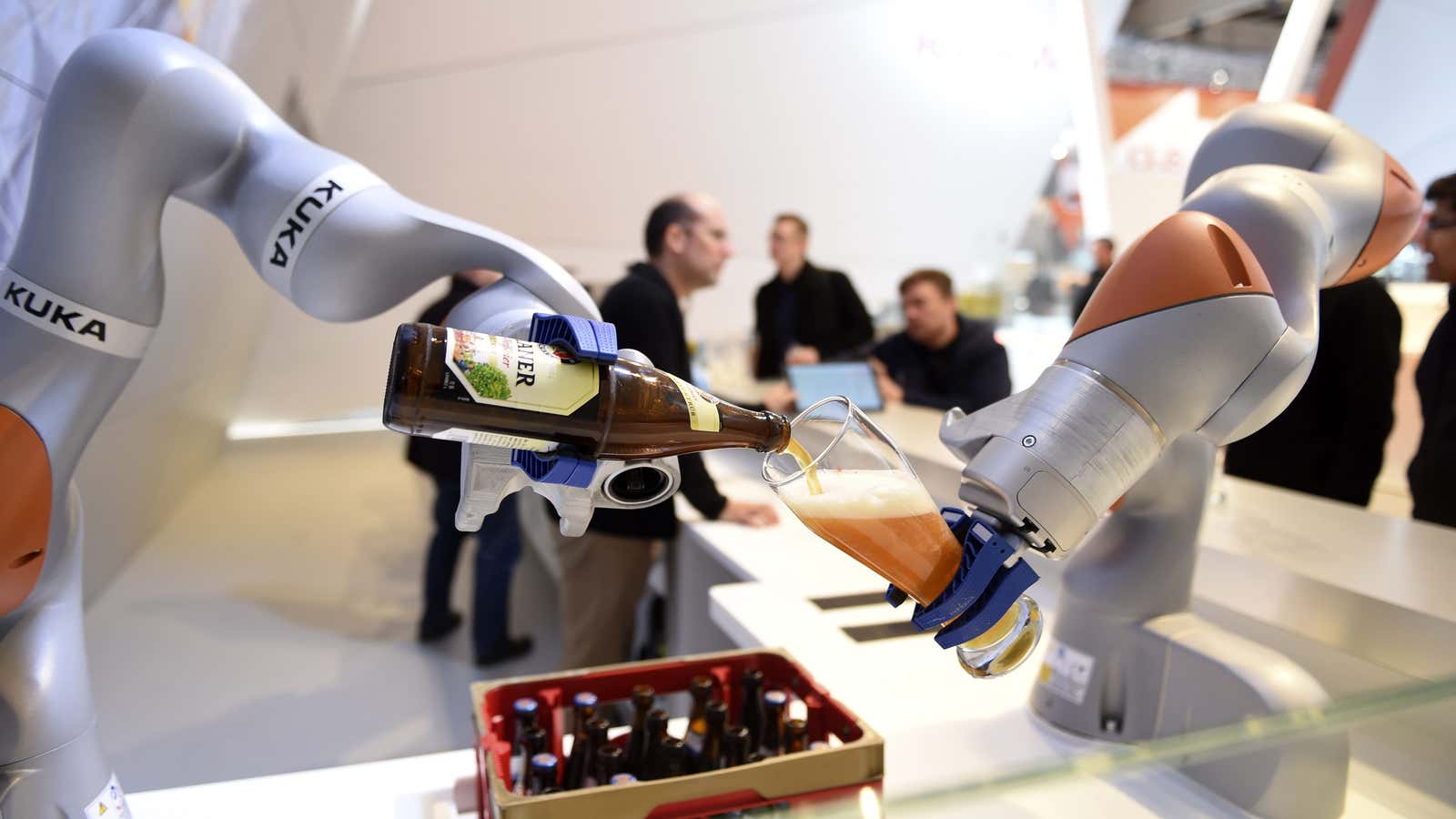Midea Group became one of China’s top companies—and broke into the Fortune 500 last year–by relying on low-paid workers to build washing machines, air conditioners, and other household appliances. Based in the Guangdong province, the region known as the “world’s factory,” it has over 100,000 employees.
But for future operations, it has its eyes on robots. Today (May 18) the company disclosed a takeover bid for Kuka, a maker of industrial robots based in Germany. The cash offer values Kuka at $5.2 billion and would allow Midea to become its largest shareholder.
The offer represents a 36% premium over Kuka’s closing share price on Tuesday, and a 60% premium to Kuka’s “unaffected” closing share price on Feb. 3, just before Midea almost doubled its holding to 10%. It’s one of the largest unsolicited approaches of a foreign company by a Chinese buyer, which is saying something, given the buying spree Chinese companies have been on of late.
The offer “isn’t exactly disciplined,” the Wall Street Journal noted (paywall), as it values the German firm at 38 times expected 2016 earnings. Of course Kuka, a jewel of German industry, won’t necessarily accept. But Midea’s interest is telling.
For Midea and other manufacturers, the labor situation in China isn’t what it used to be. Midea started off making bottle lids in the late 1960s. In decades past, it could count on a seemingly endless supply of workers willing to work for very little. Increasingly, though, employees demand higher pay, fairer treatment, and better conditions—and are more prone to holding strikes and protests.
The government has cracked down on NGOs that help migrant workers better understand and demand their rights. It’s a safe bet, though, that wages in China won’t sink to their previous low levels, and that countries like Myanmar, Cambodia, and Laos will supply much cheaper labor. Many believe Southeast Asia is set to become the next “world’s factory.“
Demographics also work against Chinese manufacturers like Midea. The working age population in China is slowly declining. And many young people in China now shun manufacturing jobs in favor of other pursuits. Midea has seen the writing on the wall.
Acquiring Kuka would allow Midea to accelerate its efforts to automate its assembly lines, which began about five years ago. ”If it’s a task that a robot can do, we’ll have one do it,” Wu Shoubao, a manager in Midea’s air conditioner division, told Caixin last year. “That’s our strategy.”
Automation, with its greater control and efficiency, would also allow Midea to make higher-end products. And it knows that other manufacturers in China are in a similar situation to its own, needing more robots to diversify and adapt to changing demographics. Owning one of the world’s biggest robot makers, then, would make a lot of sense.
Five years down the road, Midea’s premium offer for Kuka might look like a bargain.




